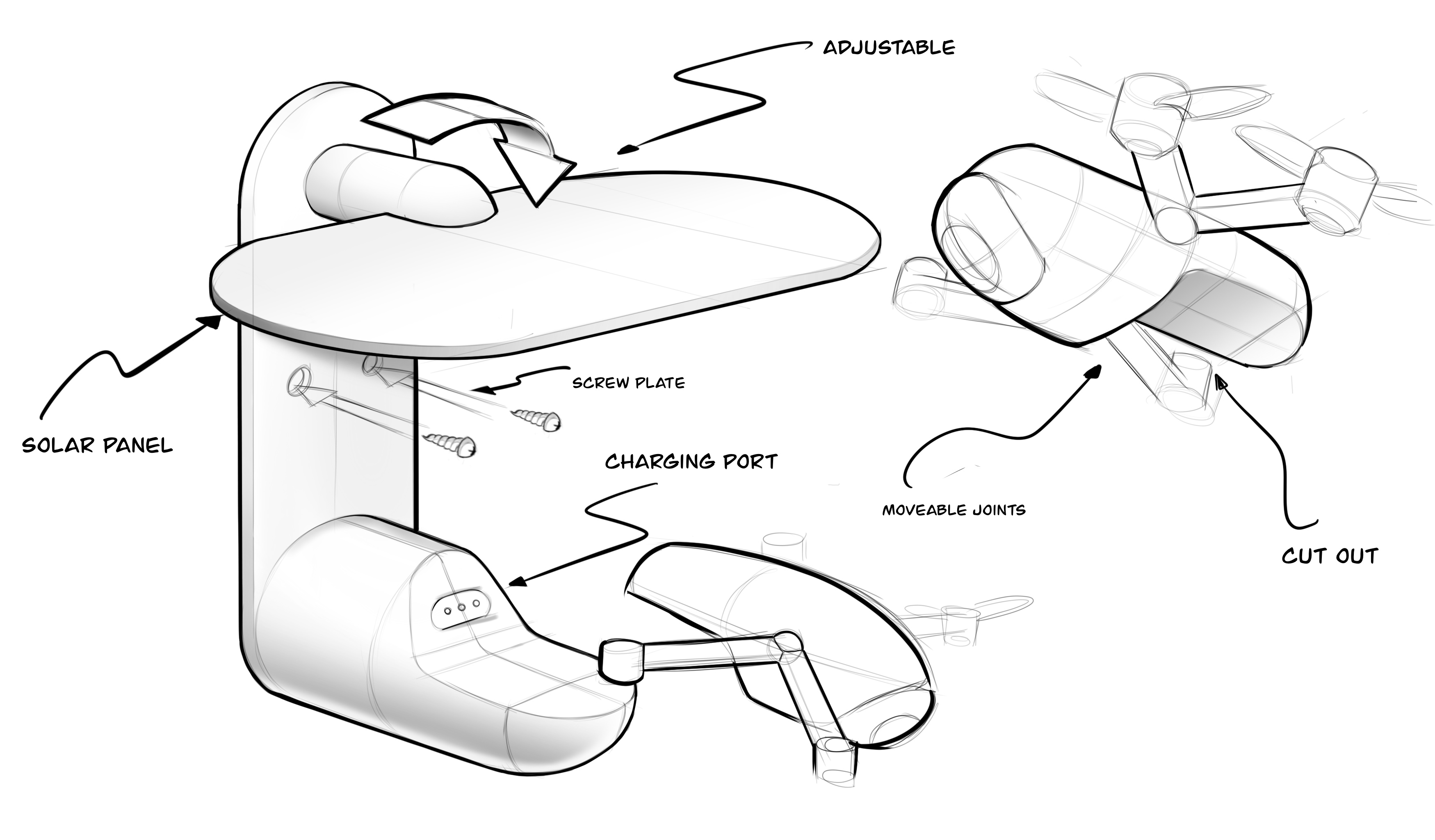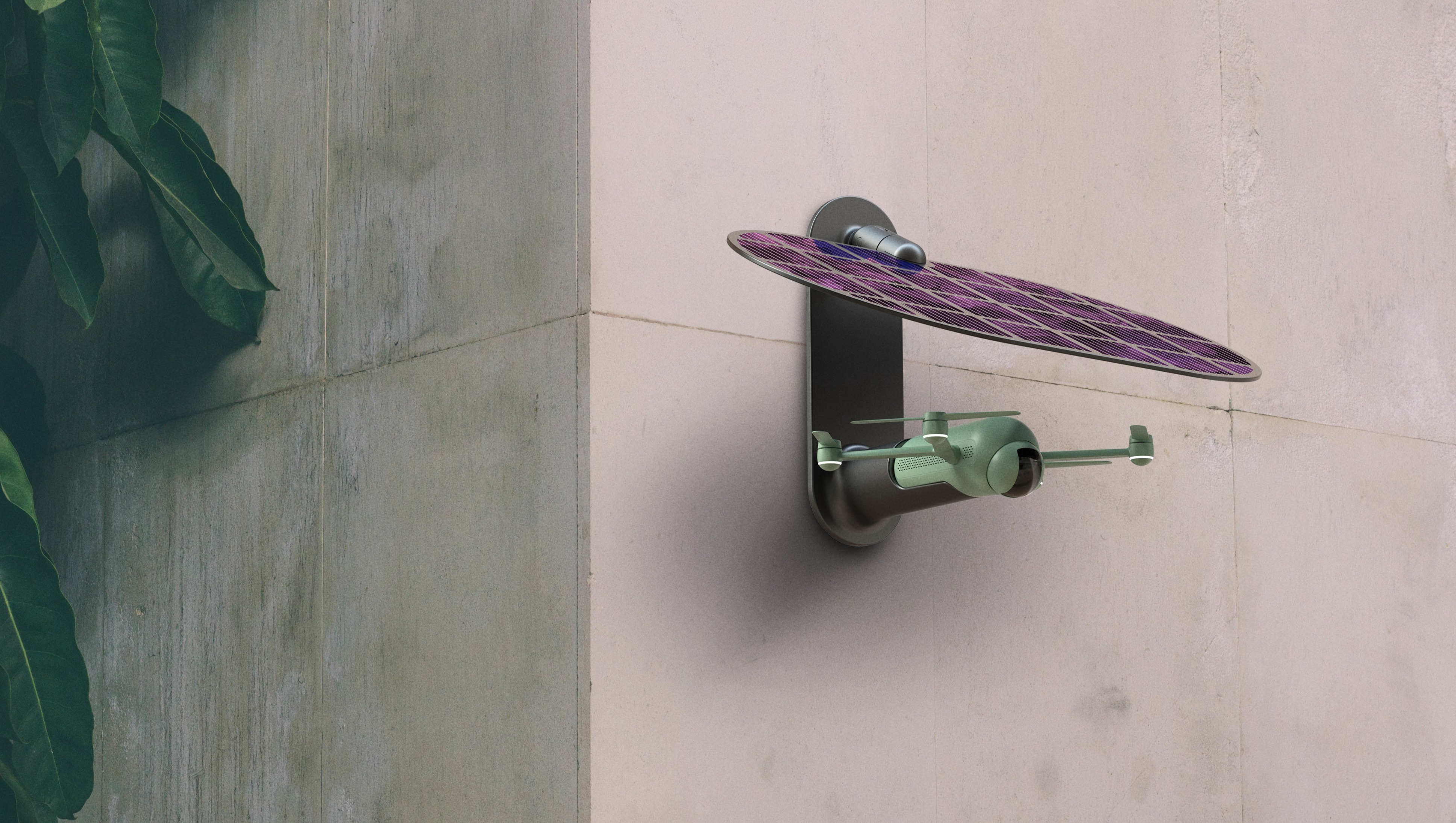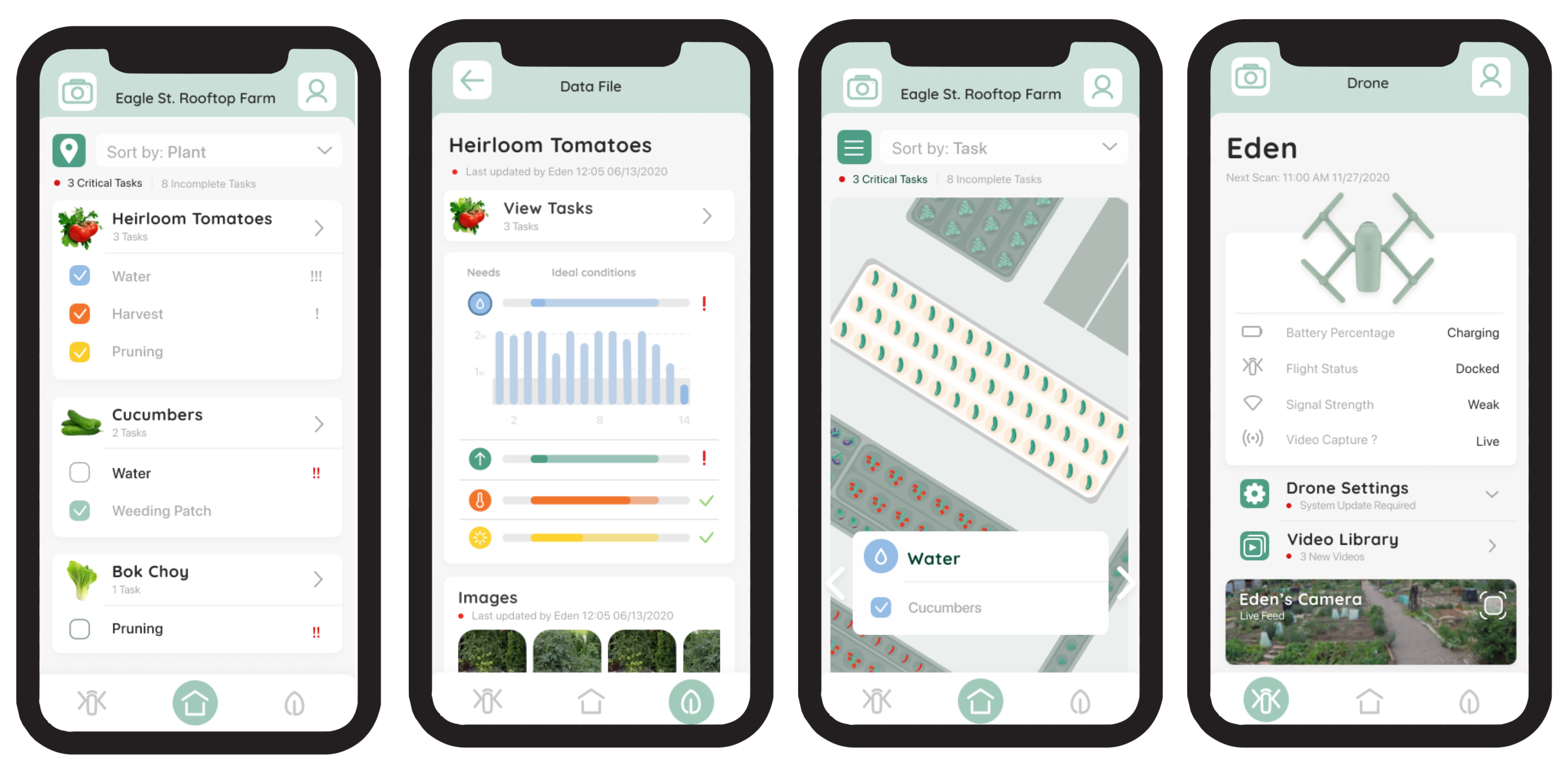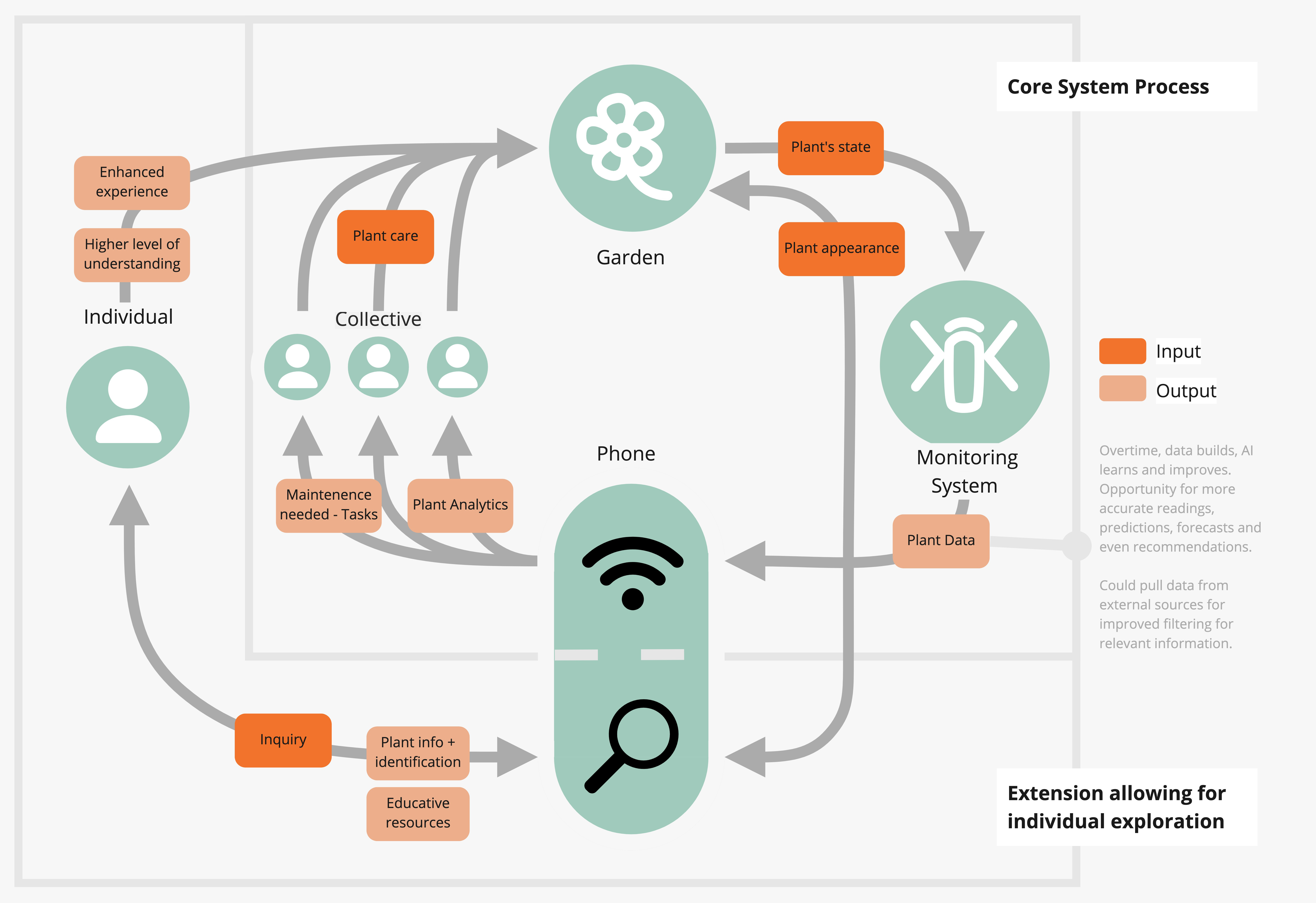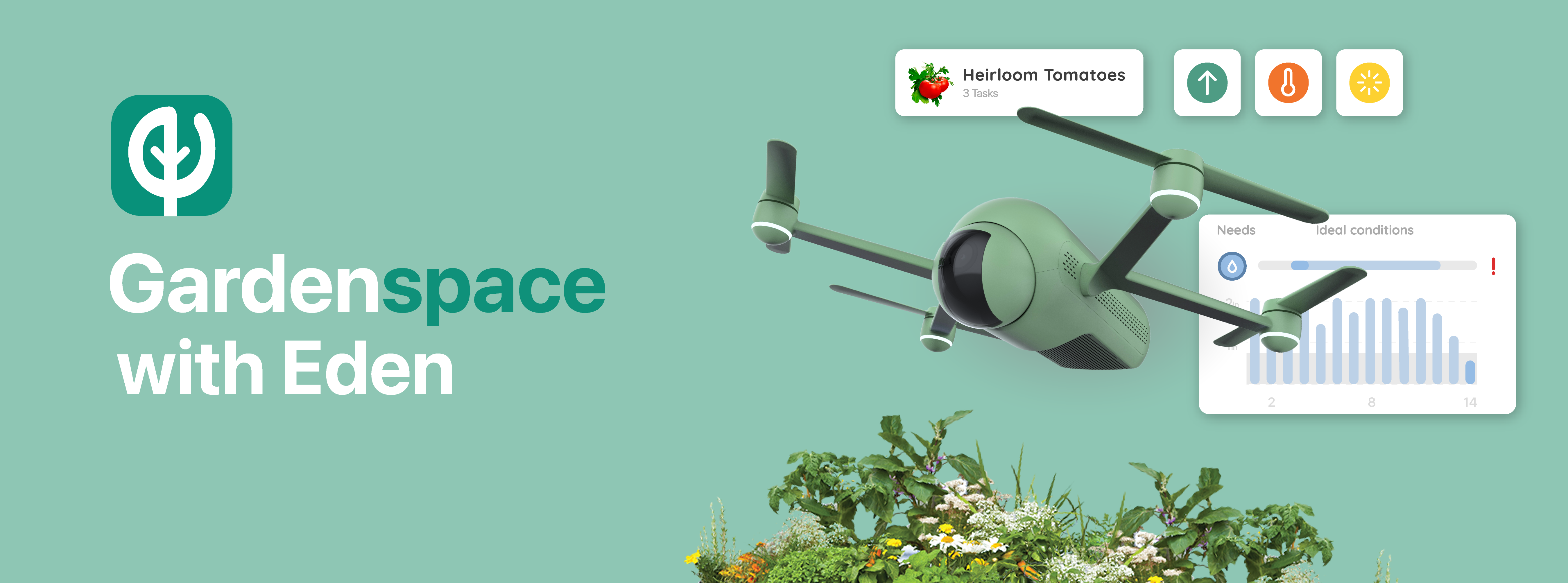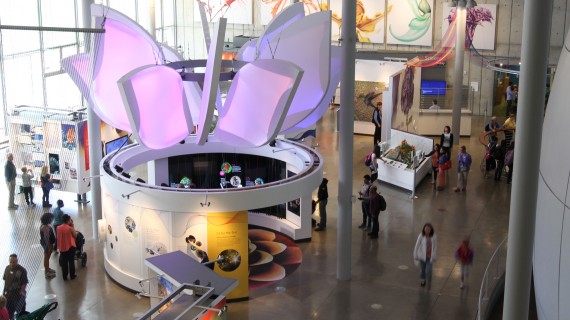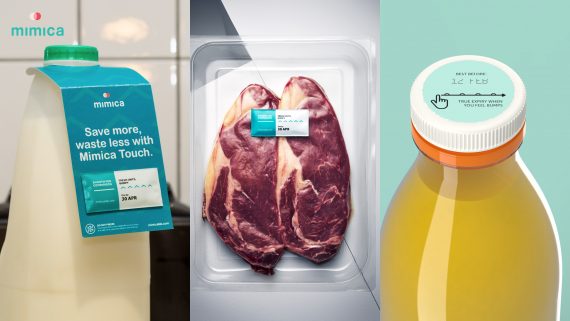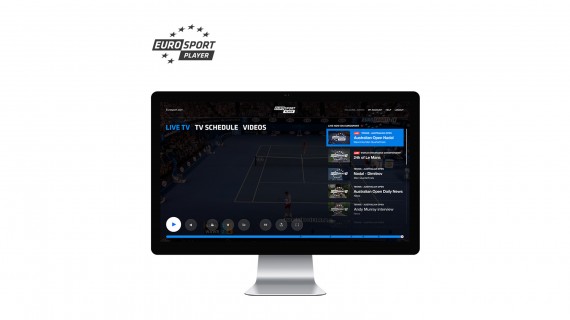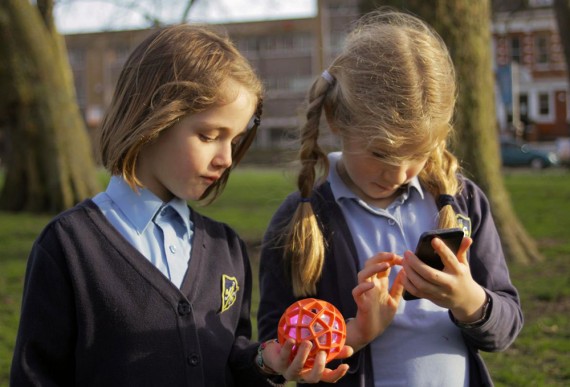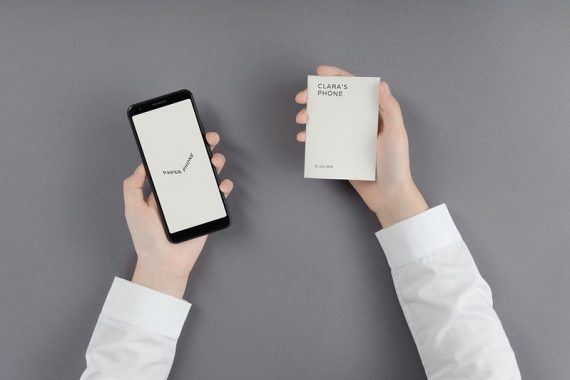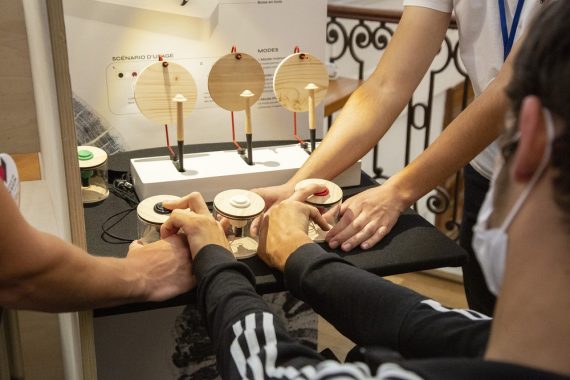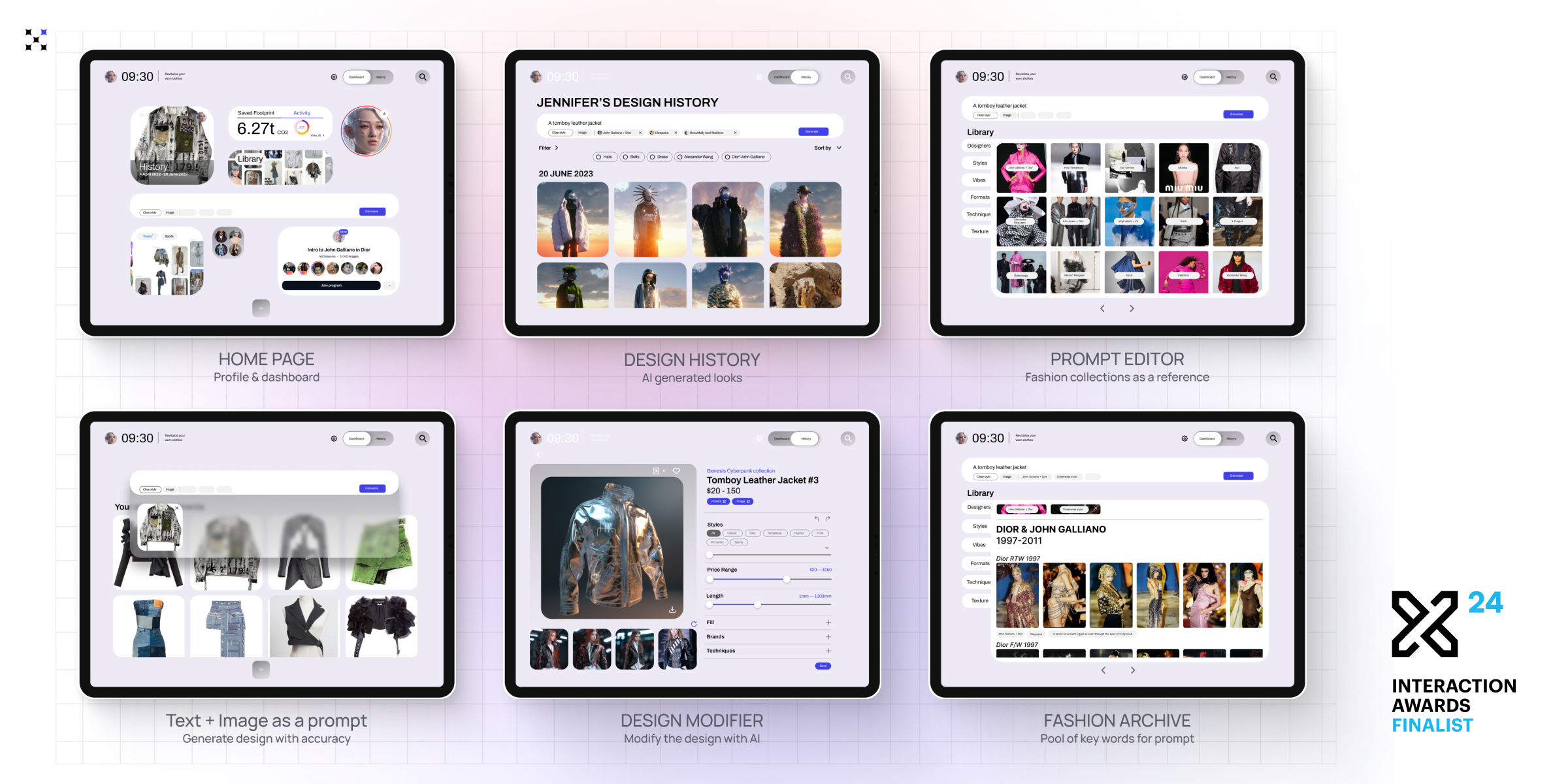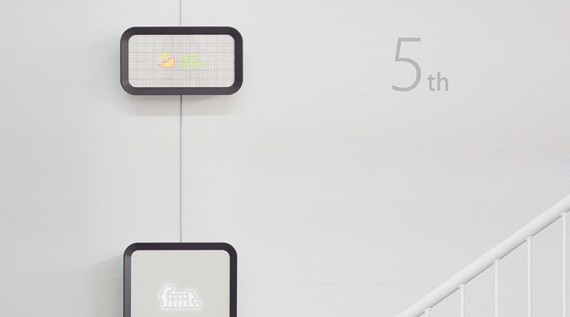GardenSpace with Eden
Team
Company | Institution
Category
Type
Project description
People are increasingly interested in sustainable lifestyles and urban community gardening to grow their own food, but the challenges in maintaining these spaces include the limited time and skills for beginning gardeners, and the lack of organization to coordinate community gardening efforts. There are many advances in computer vision and AI technologies that can be used in agriculture. We see an opportunity for AI technologies to solve problems facing framers such as climate change, yield-reducing pests and weed infestations, and to speculate on autonomous systems that can help urban farmers manage and care for their gardens. In collaboration between communication design and industrial design students, GardenSpace and Eden were proposed as conceptual solutions to this problem.
Eden the Drone, along with the GardenSpace app, utilizes computer vision technology to monitors crop health and voice assistant technology to simplify data collection and task management. As a permanent resident of the garden, Eden collects data, formulates tasks, sends updates to GardenSpace app and provides personalized instructions for gardening tasks. GardenSpace creates a community hub that administrators can easily access to measure global health by notifying volunteers, recording and synthesizing long-term data trends. A solar panel docking system was devised to charge the drone. This combination presents a technologically relevant solution to the rapidly evolving environment of a sustainable lifestyle by keeping humans in the loop of an autonomous system that monitors and assigns community gardening tasks based on individual availability and skills.
Description
This project addresses the growing interest in sustainable lifestyles with a focus on urban community gardening and speculates on the application of AI technology to help urban gardeners manage and care for their gardens.
We conducted interviews with community gardeners and trend survey of new technologies and lifestyles. Based on the understanding about the challenges in practice, we see an opportunity for AI technologies (e.g., computer vision, speech recognition, task optimization) to solve problems facing framers such as climate change, yield-reducing pests and weed infestations, as well as time and skill management for community gardening. Our design contextualizes computer vision-based agricultural technology for urban community gardening, proposing speculative scenarios of an autonomous system that monitors crop health and formulates gardening tasks. The design aims to support and optimize the collaboration of volunteers for urban community gardening who have different time availability and farming knowledge and skills. The proposed system can help raise awareness of a sustainable lifestyle and lower barriers to practice.
The project takes a posthuman and more-than-human design perspective by viewing intelligent and autonomous systems as actors that live and work alongside humans. In collaboration between communication design and industrial design students, we developed AI application scenarios to optimize the work for urban community gardening and envision collaborative synergies between intelligent systems and humans. We sketched various data flows and interaction requirements with multiple system components (e.g., drone for monitoring, app for streaming and archiving data for task management). User interface and interaction sequences were specified to involve humans in the loop of autonomous processes for updating data monitored by the drone and formulating and managing gardening tasks on the app. We devised a solar panel docking system to charge the drone. This combination presents a technologically relevant solution to the rapidly evolving environment of a sustainable lifestyle.
Our system process, device design, and app interfaces have been developed through iterative tests and revisions with low-fidelity prototypes, resulted in the final screen mockups and click-through prototype of GardenSpace app and the rendered design of Eden the drone (project images and a prototype link included). The scenario is demonstrated in a video clip (mp4).
Our project is dedicated to contextualizing and envisioning intelligent and autonomous applications of technology for a variety of human practices, paying attention to the optimal sequence of interactions and touchpoints to keep humans in the loop of an automated process for managing community gardening.
Eden the Drone, along with the GardenSpace app, utilizes computer vision technology to monitors crop health and voice assistant technology to simplify data collection and task management. As a permanent resident of the garden, Eden collects data, formulates tasks, sends updates to GardenSpace app and provides personalized instructions for gardening tasks. GardenSpace creates a community hub that administrators can easily access to measure global health by notifying volunteers, recording and synthesizing long-term data trends. A solar panel docking system was devised to charge the drone. This combination presents a technologically relevant solution to the rapidly evolving environment of a sustainable lifestyle by keeping humans in the loop of an autonomous system that monitors and assigns community gardening tasks based on individual availability and skills.
Description
This project addresses the growing interest in sustainable lifestyles with a focus on urban community gardening and speculates on the application of AI technology to help urban gardeners manage and care for their gardens.
We conducted interviews with community gardeners and trend survey of new technologies and lifestyles. Based on the understanding about the challenges in practice, we see an opportunity for AI technologies (e.g., computer vision, speech recognition, task optimization) to solve problems facing framers such as climate change, yield-reducing pests and weed infestations, as well as time and skill management for community gardening. Our design contextualizes computer vision-based agricultural technology for urban community gardening, proposing speculative scenarios of an autonomous system that monitors crop health and formulates gardening tasks. The design aims to support and optimize the collaboration of volunteers for urban community gardening who have different time availability and farming knowledge and skills. The proposed system can help raise awareness of a sustainable lifestyle and lower barriers to practice.
The project takes a posthuman and more-than-human design perspective by viewing intelligent and autonomous systems as actors that live and work alongside humans. In collaboration between communication design and industrial design students, we developed AI application scenarios to optimize the work for urban community gardening and envision collaborative synergies between intelligent systems and humans. We sketched various data flows and interaction requirements with multiple system components (e.g., drone for monitoring, app for streaming and archiving data for task management). User interface and interaction sequences were specified to involve humans in the loop of autonomous processes for updating data monitored by the drone and formulating and managing gardening tasks on the app. We devised a solar panel docking system to charge the drone. This combination presents a technologically relevant solution to the rapidly evolving environment of a sustainable lifestyle.
Our system process, device design, and app interfaces have been developed through iterative tests and revisions with low-fidelity prototypes, resulted in the final screen mockups and click-through prototype of GardenSpace app and the rendered design of Eden the drone (project images and a prototype link included). The scenario is demonstrated in a video clip (mp4).
Our project is dedicated to contextualizing and envisioning intelligent and autonomous applications of technology for a variety of human practices, paying attention to the optimal sequence of interactions and touchpoints to keep humans in the loop of an automated process for managing community gardening.

